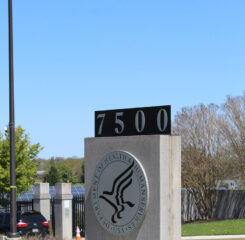Healthcare Extenders In 2020 Year End Omnibus
Medicaid
There are several positive policy updates amongst the provisions in the Medicaid extenders. Most notably, for LeadingAge and our members, are extensions of the Money Follows the Person (MFP) demonstration and spousal impoverishment protections. The MFP program will be extended through 2023 with funding at $450 million per year. Program improvements include lowering the institutional residency threshold from 90 to 60 days and adding accountability measures for states to describe their activities with the grant funds and the Secretary of Health and Human Services to issue a report on best practices. The spousal impoverishment protections for the partners of individuals receiving Medicaid-funded home and community-based services also extended to 2023. The protections help maintain community partners’ ability to afford to reside independently in the community while their loved one accesses vital support outside of an institutional setting.
Other Medicaid items that have possible implications for members include:
- Supplemental Payment Reporting Requirements – As part of our successful advocacy to block implementation of the Medicaid Fiscal Accountability Regulation (MFAR), there was increased attention paid to supplemental payments in Medicaid. By October 2021, the Secretary of HHS needs to establish a system for states to report supplemental payment data including methodology, providers who can receive the payments, along with the purpose and intended effects of the policy.
- Medicaid coverage for citizens of Freely Associated States – Medicaid eligibility for citizens of the Freely Associated States (the Federated States of Micronesia, the Republic of the Marshall Islands, and the Republic of Palau) lawfully residing in the United States under the Compacts of Free Association. With health disparities well documented among this segment of the population, we are pleased that these citizens will once again have access to vital services and supports granted by the Medicaid program and providers of aging services.
- Required Coverage of Non-Emergency Transportation – This codifies a requirement for state Medicaid programs to cover non-emergency medical transportation to necessary services. It also requires state compliance with certain program integrity standards and CMS to convene stakeholder meetings addressing challenges regarding Medicaid program integrity and coverage of such services.
Medicare
The Medicare policy provisions that have potential impacts on LeadingAge and VNAA members are mostly positive, however, many have lesser effects than the key Medicaid provisions. For Medicare home health services, the legislation requires that occupational therapists are allowed to conduct initial assessment visits and complete comprehensive assessments for home health services if the referral order does not include skilled nursing care but includes occupational therapy and physical therapy or speech-language pathology. This will take effect by January 1, 2022, and gives permanence to one of the 1135 waivers granted during the pandemic. It will further lower the barriers to access home health services for Medicare beneficiaries.
Other noteworthy items from the Medicare extenders provisions include:
- Extension of Funding for Quality Measure Endorsement, Input, and Selection – $66 million in funding provided for the work of CMS and the National Quality Forum for quality measure selection and performance improvement through September 30, 2023. LeadingAge is a voting organizational participant on the post-acute and long-term care measures application partnership to bring the experience of members to quality measurement work.
- The Independence at Home Medical Practice Demonstration Extension – The demonstration is extended for three additional years through the end of 2023 and expands the size of the demonstration from 15,000 beneficiaries to 20,000 beneficiaries. The new language still allows a limit on the number of practices albeit taking into account the additional 5,000 beneficiaries.
- Extension of Outreach and Assistance for Low-Income Programs – Funding for low-income Medicare beneficiary outreach, enrollment, and education activities are provided through September 30, 2023. It includes $50 million in funding for 2021, 2022, and 2023. These programs can benefit many of the older adults LeadingAge members serve including those in HUD-assisted housing.
- Addition of Services for Residents of Nursing Homes with Hemophilia to Consolidated Billing Exclusions – Blood clotting factors and items and services related to their furnishing are added to the categories of high-cost, low-probability services that are excluded from the skilled nursing facility per-diem prospective payment system and are separately payable. This change will allow skilled nursing facility care to be an option instead of continued inpatient care for this limited population.
- Changes to the Skilled Nursing Facility (SNF) Value-Based Purchasing (VBP) Program – This provision allows the SNF VBP program to add up to 10 additional quality measures, including measures of functional status, patient safety, care coordination, or patient experience, for services furnished after October 1, 2023. Additionally, it requires a MedPAC report by March 2022 of a prototype value-based payment program for a unified post-acute prospective payment system.
As more details emerge on the implementation of these provisions, we will share further information on the potential impact for LeadingAge and VNAA members.

Most Recommended
October 15, 2025
 Shutdown Week Three: Impact of Ongoing Closure on Affordable Housing
Shutdown Week Three: Impact of Ongoing Closure on Affordable Housing
December 10, 2025
Fiscal Year (FY) Funding 2026
October 07, 2025
Immigrant Workforce Matching Program Brings Workforce Relief
Recently Added
December 29, 2025
 RHT Program Awards: All 50 States To Receive Funds, Says CMS
RHT Program Awards: All 50 States To Receive Funds, Says CMS
December 29, 2025
 CMS Publishes Draft OASIS-E2 Guidance Manual
CMS Publishes Draft OASIS-E2 Guidance Manual
December 23, 2025
 CMS Debuts Models: ACCESS, ELEVATE and LEAD
CMS Debuts Models: ACCESS, ELEVATE and LEAD
December 22, 2025



